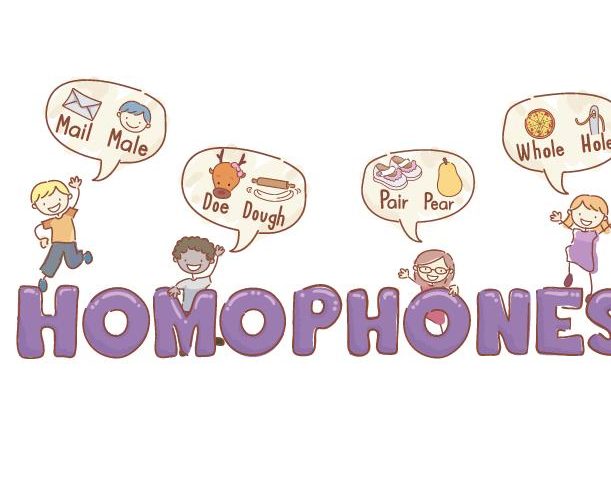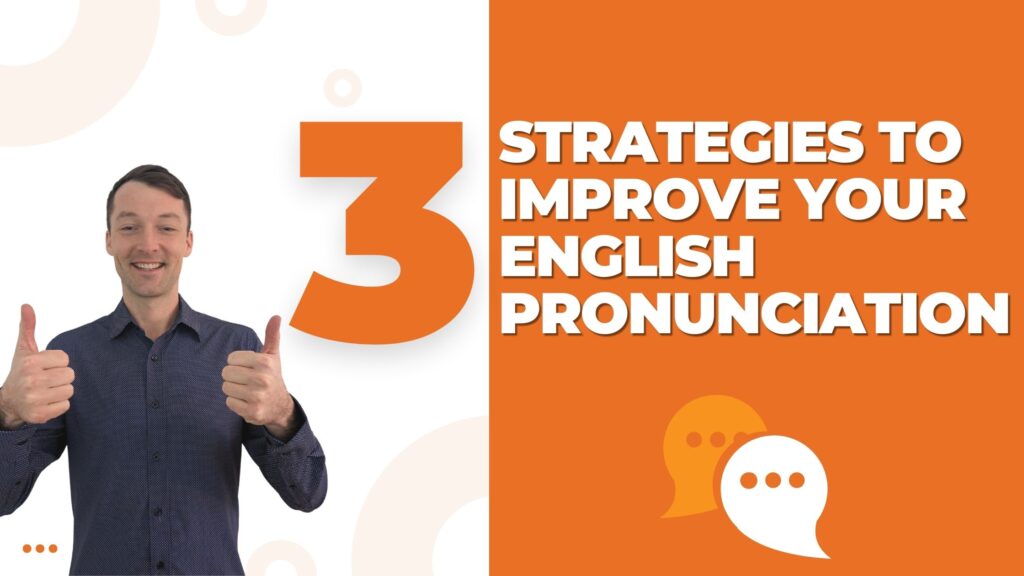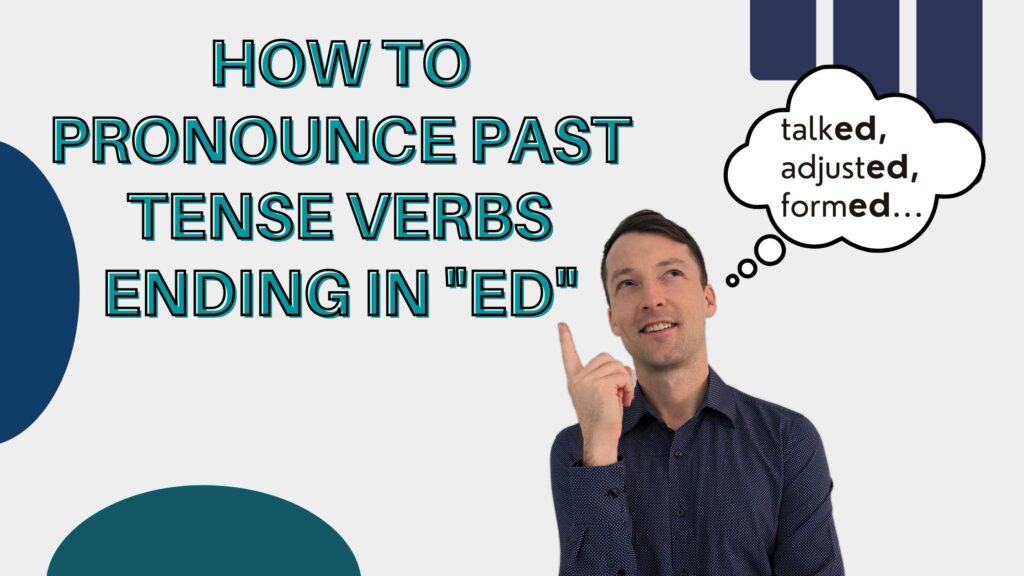Homophones are two or more words with the same pronunciation but different spellings and meanings. English has many homophones. This can sometimes be confusing to people learning English. It can also be confusing for native speakers of English as well! In this posting I include a list of 48 common English homophones. I then tell each word’s part of speech and include an example sentence. The download at the end will give you additional practice using homophones correctly.
Below is a list of common English homophones.
A through B
1. ad (noun)–an advertisement or commercial. That new ad for Burger King is very funny because it’s in cartoon form. ![]()
add (verb)– to sum up numbers. Are you able to add this, or do you need a calculator? ![]()
2. air (noun)–what we breathe. The air is polluted today. ![]()
heir (noun)–the person who will get your money after you have died. My son is my only heir. ![]()
3. aisle (noun)–a passage way in a store. You can find Coke in the soft drink aisle in the supermarket. ![]()
isle (noun)–an island. I would love to have a vacation on a tropical isle. ![]()
4. ate (verb)–past tense of eat. We ate hamburgers at the barbecue. ![]()
eight (adjective)–a number (8). They have eight children. ![]()
5. beat (verb)–to hit something. The drummer beat his drum. ![]()
beet (noun)–a root vegetable. Beets come in two colors, red or gold. ![]()
6. bare (adjective)–uncovered. He didn’t wear a hat. His head was bare. ![]()
bear (noun)–an animal. A bear broke into my car when I was camping. ![]()
7. be–to exist. He only wants to be happy. ![]()
bee–an insect. Bees give us honey. ![]()
8. brake (noun)–the part of a car that makes it stop. I need to get my front brake repaired. ![]()
break (verb)–to cause something to be broken. Don’t break my new dishes. ![]()
9. by (preposition)–near or toward. Please stand by the windows. ![]()
buy–to purchase. I need to buy a new winter coat. ![]()
C Through D
10. cent (noun)–a penny. I don’t have a cent. Can I borrow some money from you? ![]()
scent (noun)–a smell. Her perfume had a beautiful scent. ![]()
11. chili ( noun)–a food or pepper. It’s always nice to have chili on a cold day. ![]()
chilly (adjective)–cool or cold. Wear your coat. It’s chilly outside. ![]()
12. dear (adjective)–highly valued or loved. You’re a dear friend to me. ![]()
deer (noun)–an animal in a forest. We went hunting for deer. ![]()
13. die (verb)–to stop living. We will all die one day. ![]()
dye (verb)–to change the color of something. I would like to dye my hair red. ![]()
E through H
14. eye (noun)–what we see with. I got my eyes examined yesterday. ![]()
I (pronoun)–me. I am learning English. ![]()
15. fair (adjective)–to be just or equal. If everyone gets two chocolates each, that is fair. ![]()
fare (noun)–payment for using public transportation. The bus fare is too high these days. ![]()
16. flour (noun)–white powder used in baking. You need flour to bake a cake or bread. ![]()
flower (noun)–The pretty part of a plant. He brought his wife flowers for her birthday. ![]()
17. for (preposition)–indicating direction. He has already left for home. ![]()
four (adjective)–a number (4). I need four books for this class. ![]()
18. hair (noun)–what grows on your head. She has long, blond hair. ![]()
hare (noun)–a type of rabbit. Some hares can become very large. ![]()
19. hear (verb)–to be aware of sound. It’s easier to hear in a quiet room. ![]()
here (adverb)–in this place. The repairman is here. ![]()
20. hole (noun)–an opening in the ground. I almost fell into a hole in the street. ![]()
whole (adjective)–all, the entire. The whole family came to the wedding. ![]()
21. hour (noun)–60 minutes. I’ll see you in an hour. ![]()
our (adjective)–belonging to us. This is our new house. ![]() Note–many Americans pronounce this word as are.
Note–many Americans pronounce this word as are.
K through M
22. know (verb)–to have knowledge of. She doesn’t know Spanish. ![]()
no (adverb)–not. He’s no better than anyone else. ![]()
23. made (verb)–past tense of make. She made a delicious meal. ![]()
maid (noun)–a woman paid to clean. The maid cleaned my hotel room. ![]()
24. mail (noun)–from the post office. I got my credit card bill in the mail. ![]()
male (noun)–a man or boy. My husband is a male. ![]()
25. meat (noun)–food from an animal. Beef is a type of meat. ![]()
meet (verb)–to come together with someone. It was fun to meet so many nice people at the party. ![]()
O through P
26. one ( adjective )–a number (1)–I have one brother. ![]()
won (verb)–past tense of win. Our team won twelve games this season. ![]()
27. pair (noun)–2. I have a pair of tickets for the game tonight. Would you like to go with me? ![]()
pear (noun)–a fruit. Do you prefer apples or pears? ![]()
28. peace (noun)–no war. Everyone wants world peace. ![]()
piece (noun)–a part of something. Would you like a piece of pie? ![]()
29. plain (adjective)–ordinary or without anything on something. I’d like my hamburger plain–no mustard or ketchup. ![]()
plane (noun)–an airplane. We traveled here by plane. ![]()
30. poor (adjective)–not having enough money. He was too poor to afford a car. ![]()
pour (verb)–to put liquid into a cup or glass. Let me pour you some tea. ![]()
31. pray (verb)–to worship. We go to church to pray. ![]()
prey (noun)–small animals that wild animals kill for food. Rabbits are prey for hawks. ![]()
32. principal (noun)–The person in charge of a school. My son had to see the principal because he got into a fight at school. ![]()
principle (noun)–an idea. The principle of democracy is very important in the United States. ![]()
R
33. real (adjective)–true. We call him Bill, but his real name is William. ![]()
reel (noun)–used in fishing. I got a new reel to help me pull in bigger fish from the lake. ![]()
34. right (adjective)–correct. Four is the right answer to two plus two. ![]()
write (verb)–to put words on paper. Please write your name here. ![]()
S
35. sail (verb)–to glide on the water. My father loves to sail his new boat. ![]()
sale (noun)–selling something cheaply. Target is having a big sale on school supplies. ![]()
36. sea (noun)–the ocean. The ship sailed on the sea. ![]()
see (verb)–to have your eyes become aware of something. I can see better with my glasses. ![]()
37. sight (noun)–the ability to see. You need good sight to be a surgeon. ![]()
site (noun)–a physical or web location. Have you seen this new site on the internet? ![]()
cite (verb)–to point out something. Let me cite the answer for you in the textbook. ![]()
38. sew (verb)–to stitch. She can sew all her clothes, so she saves a lot of money. ![]()
so (adverb)–to add emphasis. I was so hungry! ![]()
39. some (adjective)–a partial amount. I have some extra time today, so I can help you. ![]()
sum (noun)–the answer to an addition problem. What is the sum of 23 +85? ![]()
40. son (noun)–a male child. He has two sons. ![]()
sun (noun)–the star that shines in the daytime. Do you like to sit in the sun? ![]()
41. steal (verb)–to take something that does not belong to you. It is wrong to steal from a store. ![]()
steel (noun)–a very strong metal. That building has a steel frame, however, it still fell down. ![]()
42. suite (noun)–a series of rooms used as an office. Take the elevator to the third floor. Then turn right. Our suite is number 307. ![]()
sweet (adjective)–having a sugary taste. Chocolate is very sweet. ![]()
T through Y
43. their (adjective)–belonging to them. This is their dog. ![]()
there (adverb)–in that place. He is over there, although it’s hard to see him. ![]()
they’re (pronoun and verb)–contraction for they are. They’re ready for us now. ![]()
44. to (preposition)–toward something. He is walking to school. ![]()
too (adverb)–to add emphasis to show there is a problem; also. He was too sick to go to work. I was sick, too. ![]()
two–(adjective)–a number (2)–We have two children. ![]()
45. wait (verb)–to not get what you want right away. I had to wait in line at the supermarket since it was so crowded there. ![]()
weight (noun)–what the scale says. My cousin looks great because she has lost a lot of weight. ![]()
46. weak (adjective)–not strong. After his surgery, he was too weak to sit up. He was also in pain. ![]()
week (noun)–7 days. I have a dental appointment next week. ![]()
47. wear (verb)–to put clothes on your body. What shirt should I wear today? ![]()
ware (noun)–merchandise. The flea market has wares at cheap prices. ![]()
where (adverb)–a question word for place. Where do you live? ![]()
48. your (adjective)-belonging to you. I really like your new car. ![]()
you’re (pronoun and verb)–contraction for you are–Let me know when you’re ready to go. ![]()
You now know many of the most common homophones in English. There are many others, however the ones here are homophones you will hear often in your daily life. The download will give you more practice using these words correctly.
You can download the practice sheet now!
Idioms of the day
- wet behind the ears
 –This means new and inexperienced. I’m not sure that new doctor knows very much. I think he’s still wet behind the ears.
–This means new and inexperienced. I’m not sure that new doctor knows very much. I think he’s still wet behind the ears. - right under one’s nose–This means that something is right in front of you. I looked for my wallet, and it was on my desk. It was right under my nose, and I didn’t know it!





